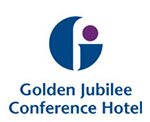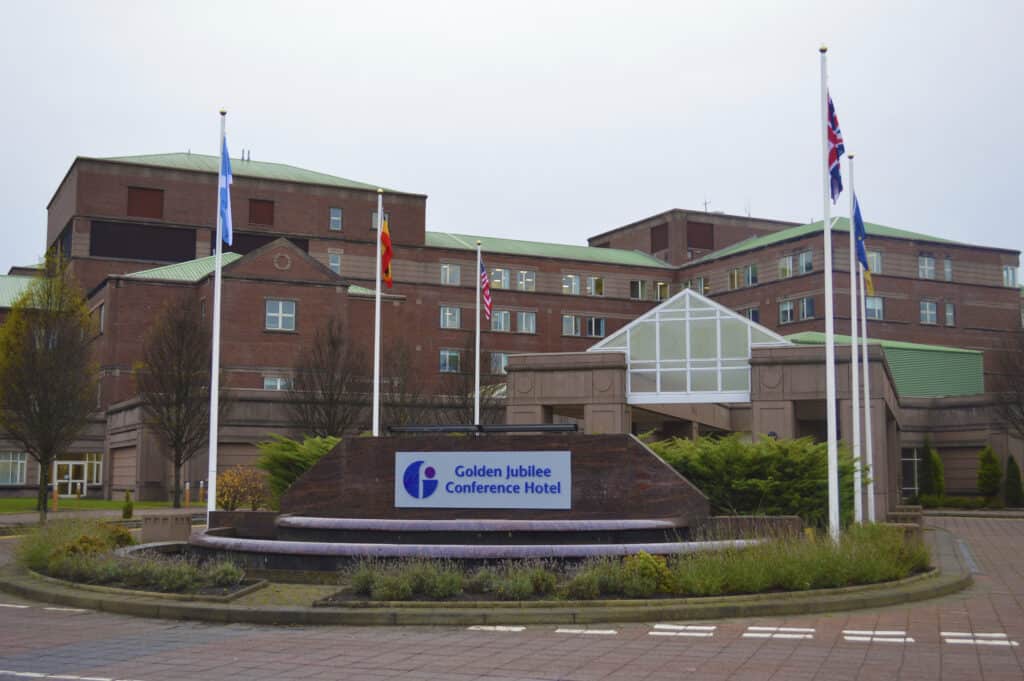In a world where staying in has quickly become the new going out, people are embracing new ways of communicating online. What does this mean for the future of meetings and events, an industry centred around bringing people together?
With social distancing likely to continue after lockdown, hybrid meetings may become an effective compromise. Events take place with a smaller live attendance whilst other participants join online.
Would delegates prefer the freedom of remote events or would they feel short-changed with the lack of interaction with others? Here, we weigh up the benefits of both the hybrid and the face-to-face meeting.
Hybrid meetings offer a more inclusive way for delegates to take part. Delegates can choose whether to attend in person at a venue or to join remotely. If travel is a problem then delegates can join the meeting virtually, cutting out travel time and costs. This increased productivity may encourage more delegates to attend whilst also reducing our carbon footprint with less numbers travelling.
Diary clashes no longer matter. The video element is easily recorded and can be made available online after the live event. This on-demand feature allows delegates to access the meeting content at a time convenient for them and they no longer miss out if they are unable to attend the original meeting.
The ease of joining hybrid meetings can widen the number of participants involved and may also attract a new audience. Delegates could be more tempted to join online first to see what’s going on – with less commitment in a virtual setting and no fear of entering an event on your own. This might encourage them to attend in person in the future.
Even remotely, delegates can still get in involved in some of the interaction offered at a live event. Two-way video chat allows participation in Q&A sessions. Various platforms such as Zoom or Slido can encourage virtual delegates to get involved through polls and online messaging can create a dialogue for those taking part remotely.
Meeting organisers are also offered a choice on how many can take part in person and online. With delegates able to join remotely, organisers can consider hiring a smaller meeting space. Meeting consumables are also reduced, with less delegate badges, printed literature and catering needed. This will no doubt cut down costs and staffing required, perhaps making it easier and more profitable for organisations to host events more regularly.
After lockdown, delegates may welcome the chance to interact with each other again and join meetings in person. The face to face meeting brings people together – communication is easier and the social aspect of conferences is a great opportunity to build relationships.
A warmer atmosphere can be conveyed face to face – from the welcome at the registration desk to the speaker being able to read body language in the room. The traditional meeting helps two-way communication flow, meaning that messages are less likely to be lost than with an online meeting.
Delegates can also engage more freely with others and network, through group discussion offered within the meeting programme or by chatting during coffee breaks. These opportunities supplement the meeting content and often the takeaways here can be just as valuable as the sessions themselves.
There are far less distractions in a conference room. Whilst there is more flexibility when joining a virtual meeting, how likely is it that a colleague may interrupt to discuss something in the office, or incoming emails become a distraction? Not to mention the countless distractions at home. In a venue, delegates can fully focus on the meeting content, switch off their phones and are less likely to wander off to make a coffee mid-presentation.
Technical issues are reduced in a face to face setting. Delegates attending in person don’t need to think about their internet connection dropping out. The pressure is also eased for the organiser as they don’t need to worry about speakers joining virtually or problems with the video syncing up with slides. Whilst many venues can offer a technician service to help with in-house equipment, they will be unlikely to help with participants having problems remotely.
There’s still so much uncertainty on how the world will look post-Coronavirus but the Golden Jubilee Conference hotel will continue to support organisers and offer options for both the hybrid and face to face meeting. Get in touch with us to find out more at conferences@goldenjubilee.scot.nhs.uk or on 0141 951 6003.





